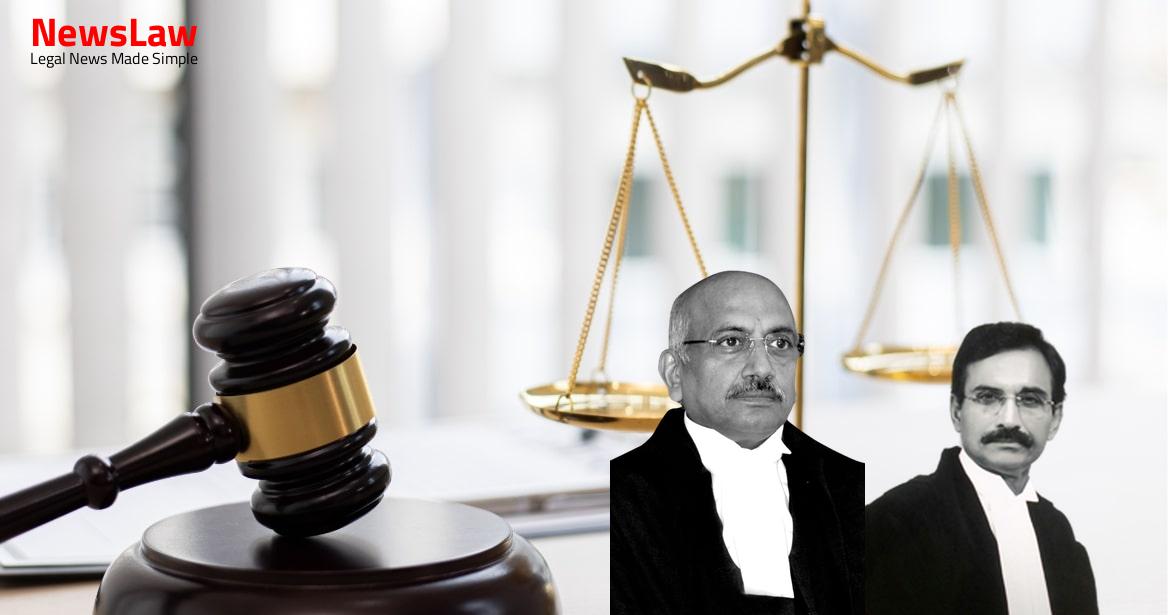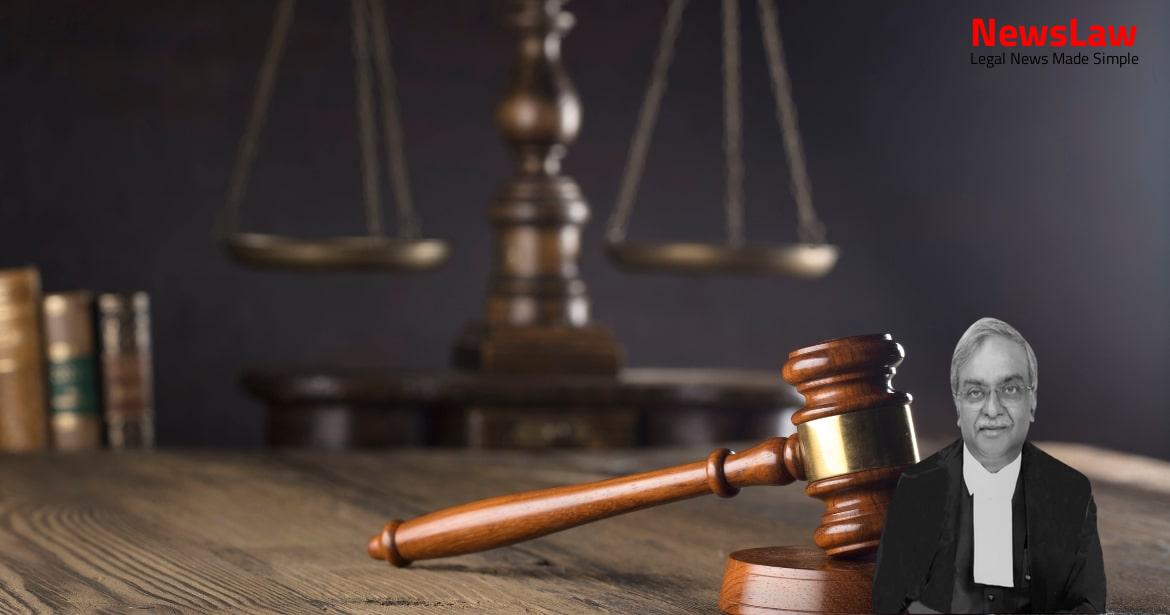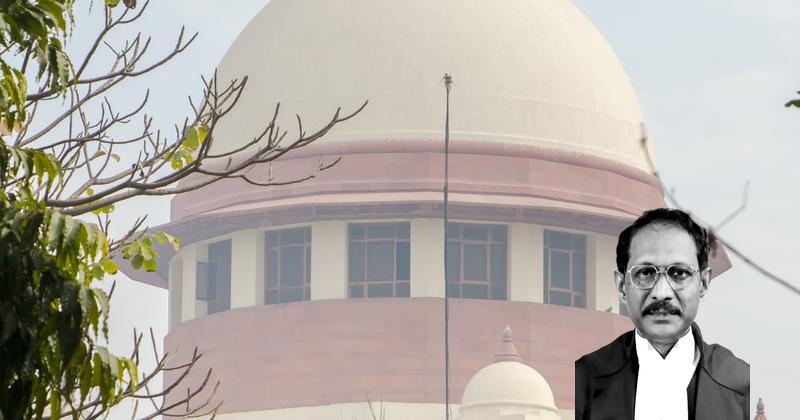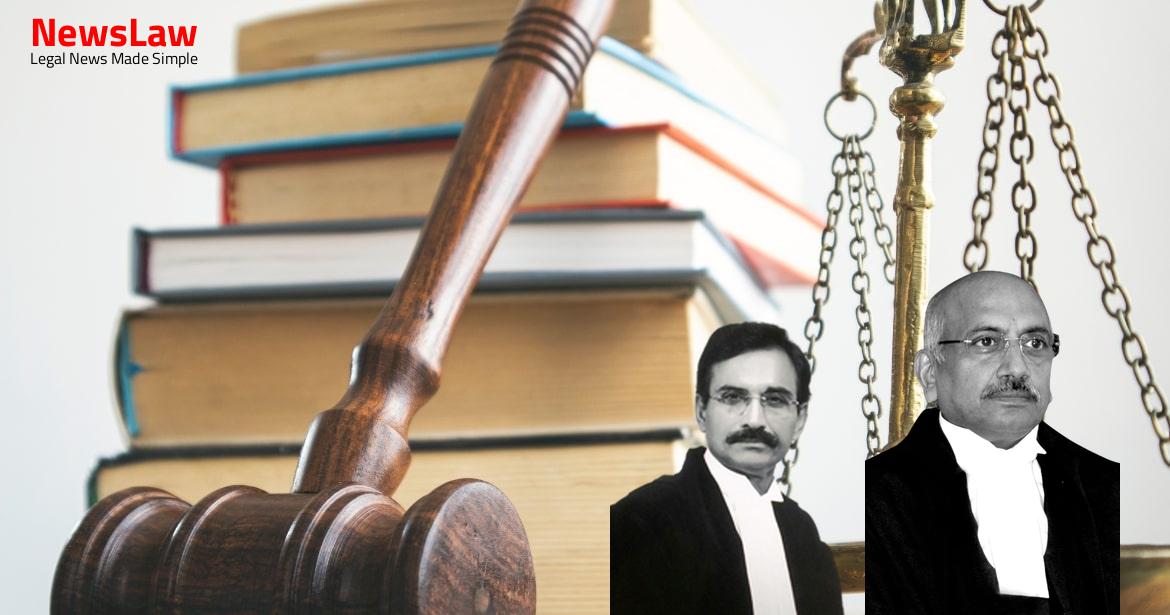Discover the impactful Supreme Court judgment regarding the quashing of proceedings related to Sri K. Sampath Kumar’s case. Delve into the intricacies of the legal arguments and the implications of this ruling in the realm of corruption allegations. Stay informed on the latest developments surrounding this high-profile legal battle.
Facts
- The High Court partially allowed the petition filed by the Accused Officer under Section 482 of the Code of Criminal Procedure, 1973.
- The proceedings related to Crime No 28/ACB-CIU-HYD/2011 dated 9 November, 2011 were quashed.
- The Accused Officer was appointed under a contract, not under the rules framed under the proviso to Article 309 of the Constitution of India.
- Due to not being appointed in accordance with the Rules, the Accused Officer was deemed ineligible for any relaxation in upper age for appointment on a regular basis in a post advertised by Union Public Service Commission.
- Article 310 of the Constitution specifies that individuals holding certain positions under the Union hold office at the pleasure of the President.
- The Accused Officer joined as Sub Inspector on 19 September, 1985 and was promoted to Inspector on 4 April, 1997.
- A total of 114 witnesses were examined during the investigations.
- The FIR was registered based on the statement given by Ch. Sudhakar, Deputy Superintendent of Police at about 10 am.
- A charge sheet was filed on 9 October, 2017 after completion of investigations.
- The Accused Officer was re-employed after superannuation on multiple occasions, with extensions granted each time.
- The Joint Director of ACB authorized the registration of a case against the Accused Officer under specific sections of the Act.
- The total worth of the Accused Officer’s property was found to be approximately Rs. 3,55,61,500, disproportionate to his known sources of income.
- A draft final report was prepared on 30 April, 2015 but submitted after the Accused Officer’s retirement on 31 May, 2017.
- The investigation into the case was conducted by Ch. Sudhakar, DSP, CIU, ACB, Hyderabad and five other investigating officers.
- The final report indicated that the Accused Officer possessed assets worth Rs. 3,18,61,500, allegedly disproportionate to his income.
Also Read: Equivalency of Educational Qualifications in the Case of Instructors’ Appointments
Arguments
- Sri K. Sampath Kumar discharged the duties of Joint Director in the Anti-Corruption Bureau.
- This was done in exercise of powers granted by the State Government.
- The Arg Respondent’s counsel argued that a preliminary inquiry before the registration of a crime is mandatory.
- Mr. Guru Krishna Kumar, the Accused Officer, filed an appeal.
- The learned senior counsel vehemently presented their arguments in support of the appeal.
Also Read: Interpretation of Mandatory Statutory Time Limits
Analysis
- Offence under clause (e) of sub-section (1) of Section 13 of the Act requires an order from a Police Officer of at least the rank of Superintendent of Police for investigation.
- Investigation of this offence cannot proceed without the authorization of a Superintendent of Police or higher ranking officer.
- This provision ensures that the serious nature of the offence is properly handled and investigated by more senior law enforcement officials.
- The requirement of authorization from a senior police officer adds a layer of oversight and professionalism to the investigation process.
- The High Court relied on precedent to establish that a fair investigation requires the informant and the investigator to be different individuals.
- Reference was made to various judgments to explain the necessity of a preliminary inquiry in certain cases to determine the credibility of accusations before filing an FIR.
- It was established that the registration of an FIR is mandatory under Section 154 of the Code if the information reveals a cognizable offense.
- No fixed format or manner for conducting a preliminary inquiry was specified.
- Legal principles regarding executive powers and appointments, especially in the context of re-employment after retirement, were outlined.
- The de facto doctrine was reiterated as a means to validate actions taken in public interest.
- The necessity of a preliminary inquiry was emphasized, with a clarification that it may not be mandatory in all corruption cases.
- The validity of authorizations and actions taken by officers in assumed official authority in public interest was upheld.
- Various judgments and legal doctrines were cited to support the decisions made by the High Court in the case under review.
- The High Court cannot comment on the nature of employment of Sri K. Sampath Kumar while deciding a petition for quashing of proceedings under Section 482 of the Code.
- Re-employment of a retired personnel from the Indian Police Service falls within the executive power of the State and does not contravene any statutory provisions.
- The FIR in this case pertains to allegations of disproportionate assets against the Accused Officer, handled by the Superintendent of Police, Vigilance and Anti-Corruption, Ramanathapuram.
- There is no prohibition in the service rules against re-employment of a former civil service officer.
- The investigation was conducted in accordance with the law, and the investigating officer was authorized to file a report for offenses under the Act.
- A preliminary inquiry is conducted to screen frivolous complaints and ensure a fair criminal investigation process.
- The trial court’s decision to apply amended provisions of the Act to offenses committed before the amendments was found unjustified by the High Court, remanding the matter for reevaluation.
- The FIR in this case was registered before the Act was amended in 2018, making the application of amended provisions inappropriate.
- The argument for the applicability of amended provisions based on the Amending Act of 2018 does not hold merit.
- Arguments raised by the Accused Officer not accepted
- Reasoning of the High Court on contentions of the Accused Officer found to be lacking merit
- Proceedings under the Act not quashed
Decision
- Criminal Appeal No 1663 of 2019 filed by the Accused Officer is dismissed
- Criminal Appeal No 1662 of 2019 filed by the State is allowed
Case Title: THE STATE OF TELANGANA Vs. MANAGIPET @ MANGIPET SARVESHWAR REDDY
Case Number: Crl.A. No.-001662-001662 / 2019



